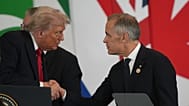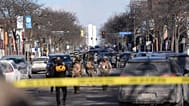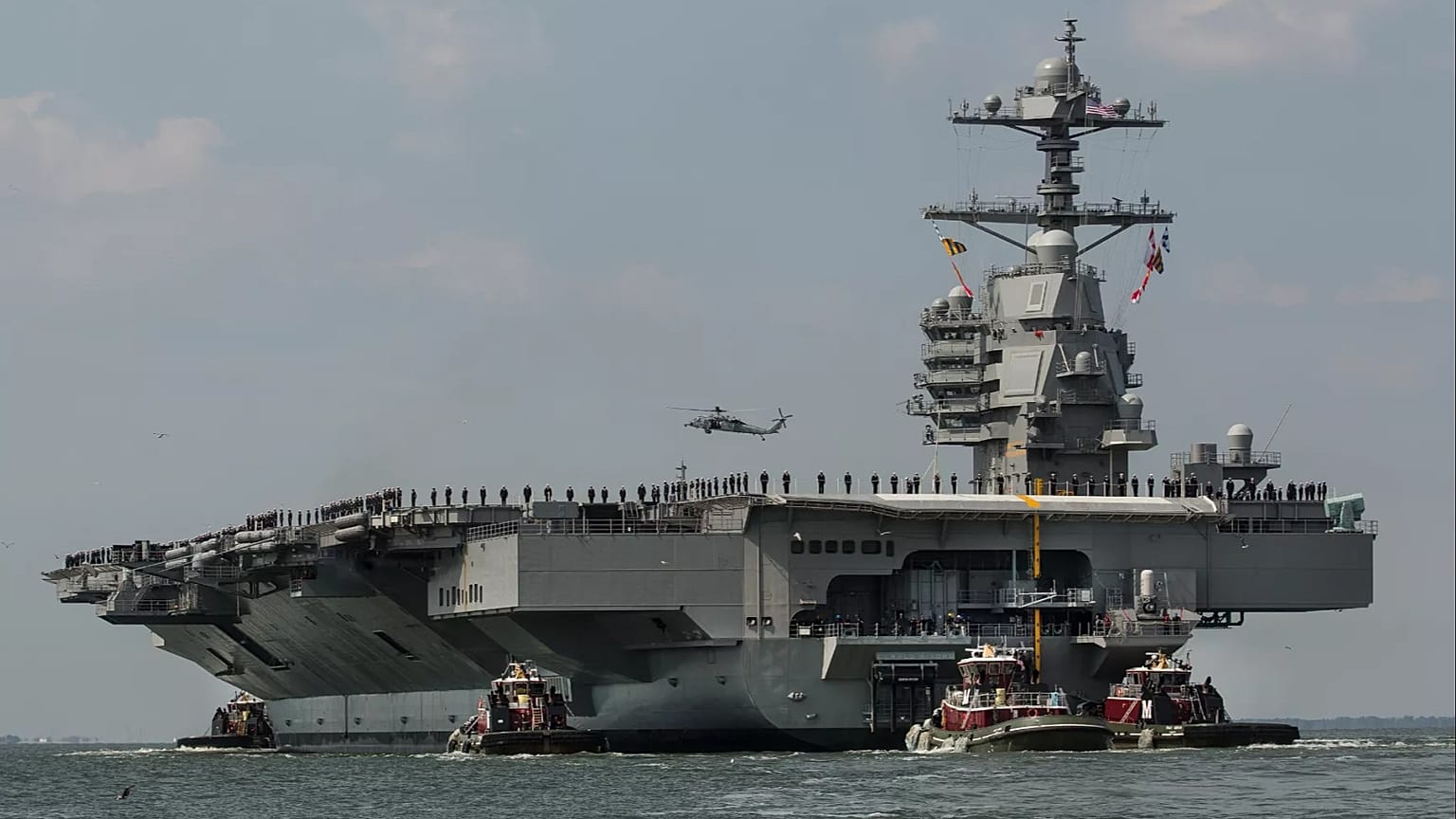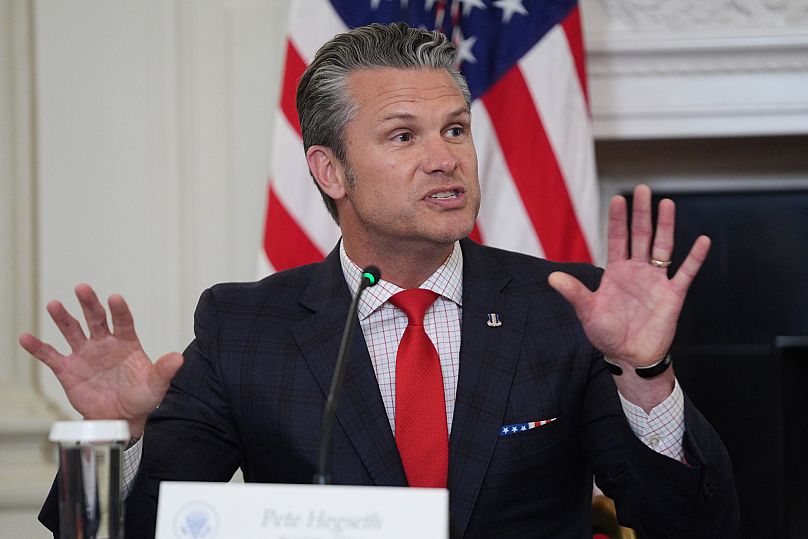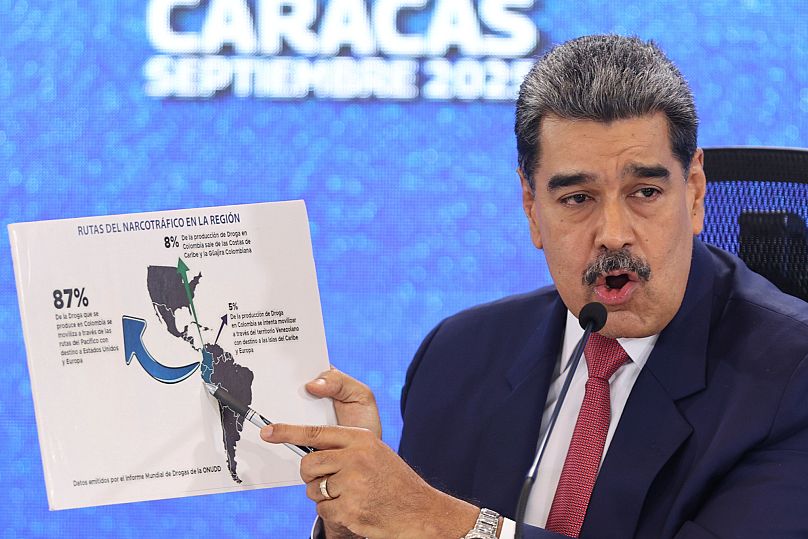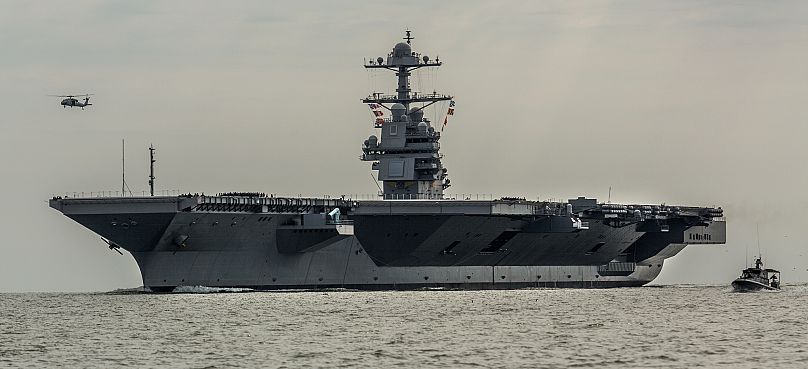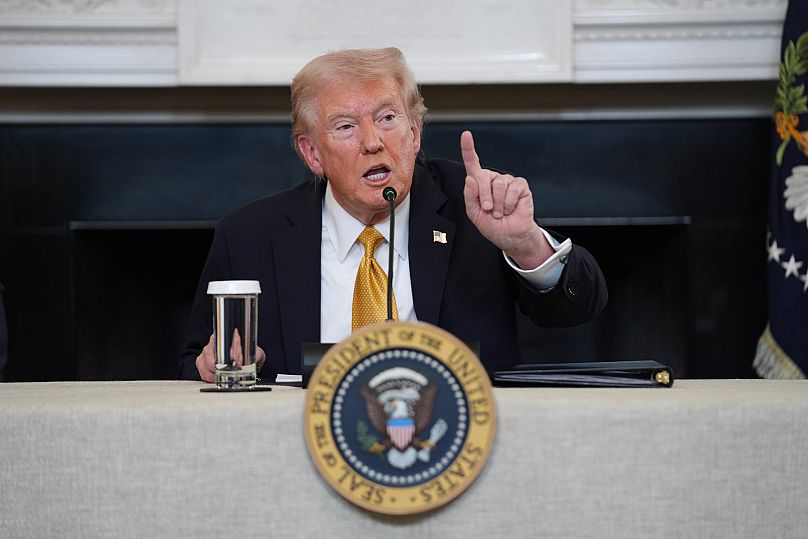Deploying an aircraft carrier is a major escalation of military power in a region that has already seen an unusually large US military buildup in the Caribbean Sea and the waters off Venezuela.
The US military is sending an aircraft carrier to the waters off South America, in the latest escalation and buildup of military forces in the region, the Pentagon announced Friday.
Secretary of War Pete Hegseth ordered the USS Gerald R. Ford and its strike group to deploy to US Southern Command to "bolster US capacity to detect, monitor, and disrupt illicit actors and activities that compromise the safety and prosperity of the United States," Pentagon spokesperson Sean Parnell said in a social media post.
The USS Ford, which has five destroyers in its strike group, is currently deployed to the Mediterranean Sea.
Deploying an aircraft carrier is a major escalation of military power in a region that has already seen an unusually large US military buildup in the Caribbean Sea and the waters off Venezuela.
Hours before Parnell announced the news, Hegseth said the military had conducted its 10th strike on a suspected drug-running boat, leaving six people dead and bringing the death count for the strikes that began in early September to at least 43.
Hegseth said the vessel struck overnight was operated by the Tren de Aragua gang. It was the second time the Trump administration has tied one of its operations to the gang that originated in a Venezuelan prison.
The pace of the strikes has quickened in recent days from one every few weeks when they first began to three this week, killing a total of at least 43 people since September.
Hegseth said the latest strike happened in international waters and boasted that it was the first one conducted at night.
"If you are a narco-terrorist smuggling drugs in our hemisphere, we will treat you like we treat Al-Qaeda," Hegseth said in the post. "Day or NIGHT, we will map your networks, track your people, hunt you down, and kill you."
US focus on Venezuela
The strike drew parallels to the first announced by the US last month by focusing on Tren de Aragua, which the Trump administration has designated a foreign terrorist organisation and blamed for being at the root of the violence and drug dealing that plague some cities.
While not mentioning the origin of the latest boat, the Republican administration says at least four of the boats it has hit have come from Venezuela.
The attacks and an unusually large US military buildup in the region have raised speculation that the administration could try to topple Venezuelan President Nicolás Maduro, who faces narcoterrorism charges in the US.
In the latest move, the US military flew a pair of hypersonic heavy bombers up to the coast of Venezuela on Thursday.
The Trump administration maintains that it’s combating drug trafficking into the United States, but Maduro argues that the operations are the latest effort to force him out of office.
Maduro on Thursday praised security forces and a civilian militia for defence exercises along some 2,000 kilometres of coastline to prepare for the possibility of a US attack.
In the span of six hours, "100% of all the country’s coastline was covered in real time, with all the equipment and heavy weapons to defend all of Venezuela’s coasts if necessary," Maduro said during a government event shown on state television.
"Not war, not war, not war. Just peace, just peace, just peace. Forever, forever, forever. No crazy war," Maduro said on Friday, in comments apparently mocking Trump.
The US military's presence is less about drugs than sending a message to countries in the region to align with US interests, according to Elizabeth Dickinson, the International Crisis Group's senior analyst for the Andes region.
"An expression that I'm hearing a lot is 'Drugs are the excuse.' And everyone knows that," Dickinson said.
"And I think that message is very clear in regional capitals. So the messaging here is that the US is intent on pursuing specific objectives. And it will use military force against leaders and countries that don’t fall in line."
Comparing the drug crackdown to the war on terror
Hegseth's remarks around the strikes have recently begun to draw a direct comparison between the war on terrorism that the US declared after the 11 September 2001 attacks that destroyed the World Trade Centre towers in New York.
Trump declared drug cartels to be unlawful combatants earlier this month and said the US was in an "armed conflict" with them, relying on the same legal authority used by the Bush administration after 9/11.
When reporters asked Trump on Thursday whether he would request Congress issue a declaration of war against the cartels, he said that wasn’t the plan.
"I think we’re just going to kill people that are bringing drugs into our country, OK? We’re going to kill them, you know? They’re going to be like, dead," Trump said during a roundtable at the White House with homeland security officials.
Lawmakers from both major political parties have expressed concerns about Trump ordering the military actions without receiving authorisation from Congress or providing many details.
Democrats have insisted the strikes violate international law.
"I've never seen anything quite like this before," said Senator Andy Kim, who previously worked in the Pentagon and the State Department.
"We have no idea how far this is going, how this could potentially bring in, you know, is it going to be boots on the ground? Is it going to be escalatory in a way where we could see us get bogged down for a long time?" he said.
But Republican Representative Mario Diaz-Balart of Florida, who has long been involved in foreign affairs in the hemisphere, said of Trump's approach: "It's about time."

